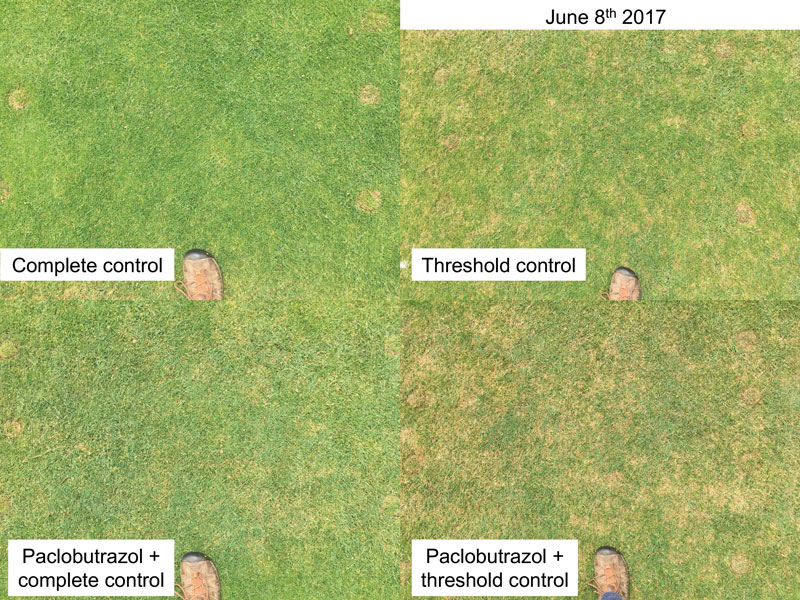
Photos by Matthew T. Elmore
Editor’s note: The following research project is in progress and was featured in the Cutting Edge section of GCM. This research project was funded by a grant to GCSAA from the Environmental Institute for Golf.
The objective of this research is to develop programs for annual bluegrass control in creeping bentgrass fairways using annual bluegrass weevil (ABW), plant growth regulators (PGR) and interseeding.
Trials were initiated on mixed stands of annual bluegrass and creeping bentgrass with a history of ABW at three sites in New Jersey — Rutgers University Hort Farm No. 2 and two golf courses — April 20-27, 2017.
Six treatments were tested: no insecticides = plots not treated with insecticides for ABW control; threshold control = plots treated with cyantraniliprole after unacceptable turfgrass quality was visible in most non-treated plots; complete control = plots treated with an industry standard insecticide program for ABW control; and the three remaining programs were the same as the first three with the addition of the PGR paclobutrazol.
Initial results suggest reductions in annual bluegrass quality caused by ABW larvae did not translate to season-long reductions in annual bluegrass cover. The paclobutrazol program reduced annual bluegrass cover at the Hort Farm No. 2 location. The combination of paclobutrazol and ABW threshold programs will be explored in more detail in 2018. The trial was terminated early at one of the golf courses because of the over-application of a herbicide, but that trial will be restarted in 2018. At the third location, the preventive insecticide program provided inconsistent results, and those data, therefore, need further analysis.
— Katherine Diehl; Matthew T. Elmore, Ph.D.; Albrecht M. Koppenhöfer, Ph.D.; and James A. Murphy, Ph.D., Rutgers University, New Brunswick, N.J.
Teresa Carson is GCM’s science editor.